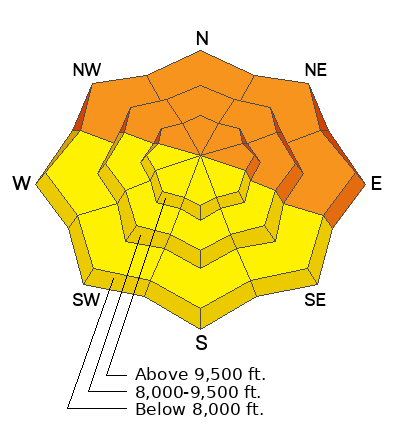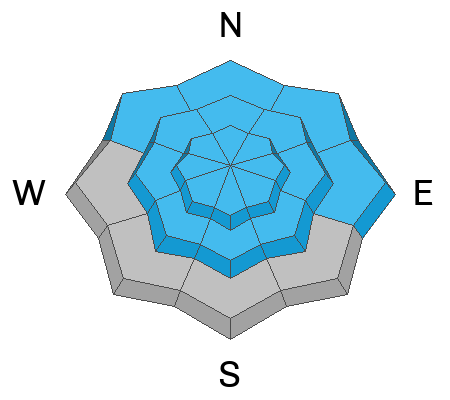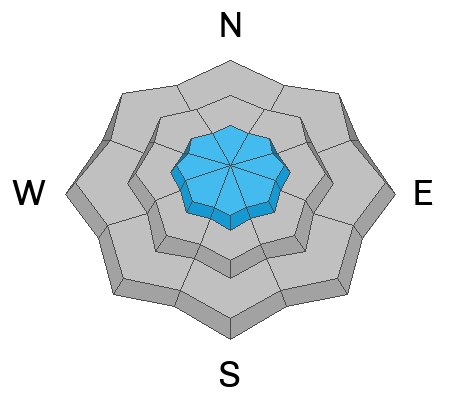Forecast for the Salt Lake Area Mountains

Issued by Dave Kelly on
Tuesday morning, December 13, 2022
Tuesday morning, December 13, 2022
The avalanche danger is CONSIDERABLE on northwest through east aspects where natural and human-triggered avalanches may break 1-4' deep and 200' wide, failing on a persistent weak layer of faceted snow. The avalanche danger is MODERATE on west-south-southeast aspects.
The north facing slopes that are harboring old weak faceted snow surfaces are not to be messed with.
HEADS UP - Please make sure any friends or family members who may be walking a dog, snowshoeing, etc. are aware that they can trigger avalanches on small steep slopes.

Low
Moderate
Considerable
High
Extreme
Learn how to read the forecast here










